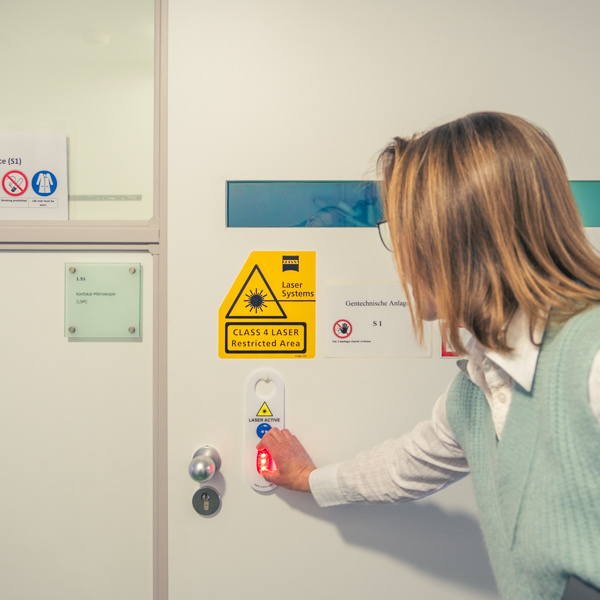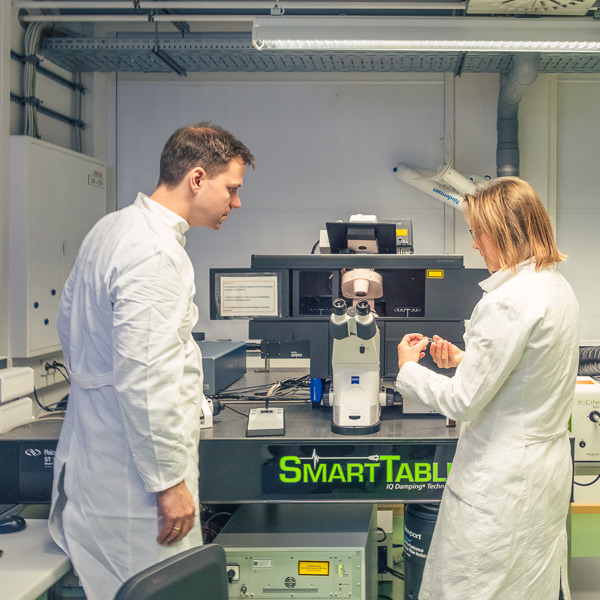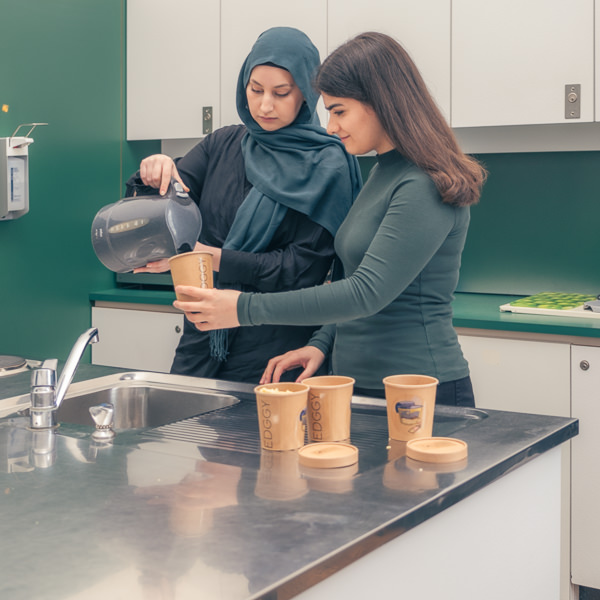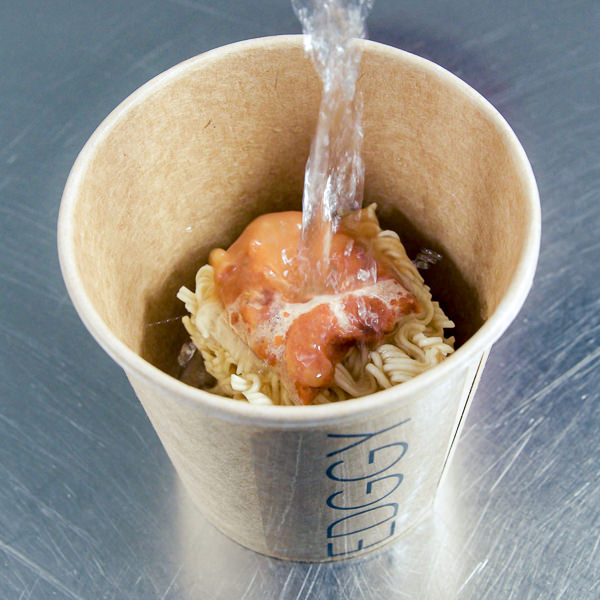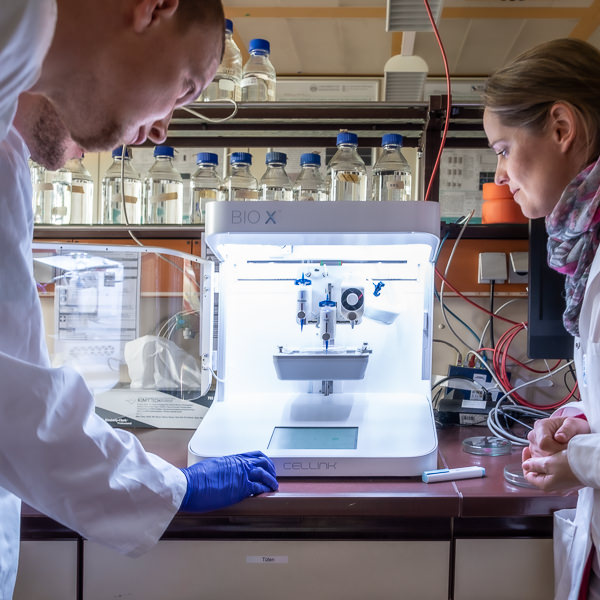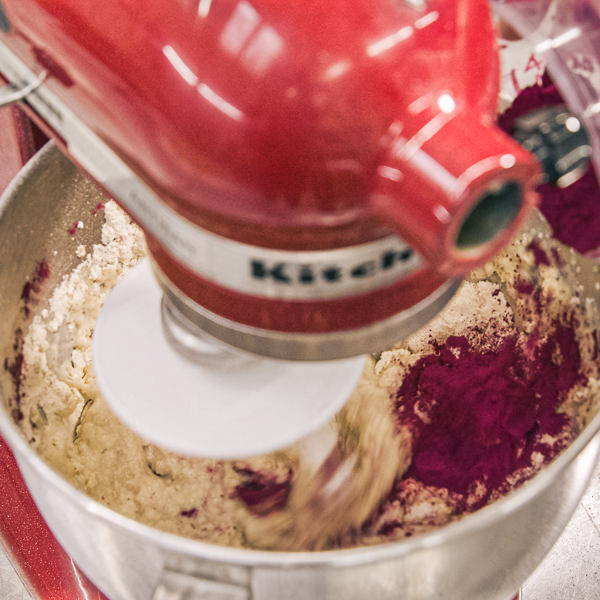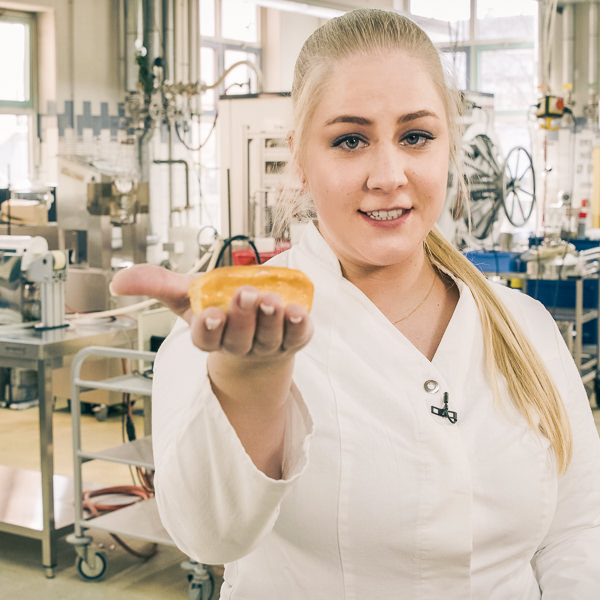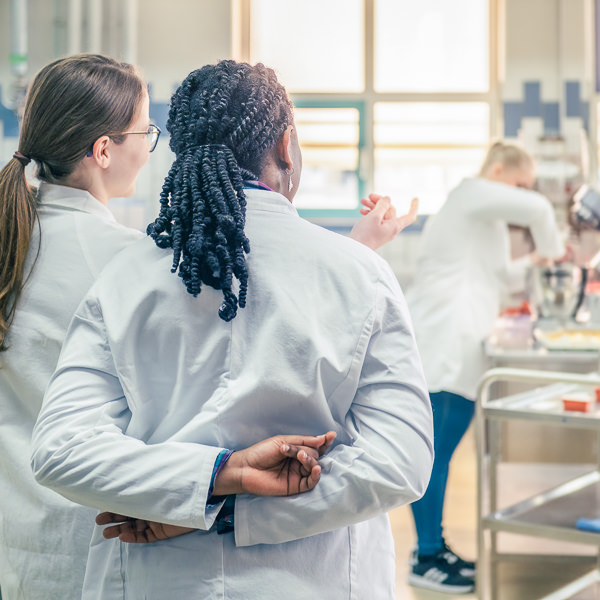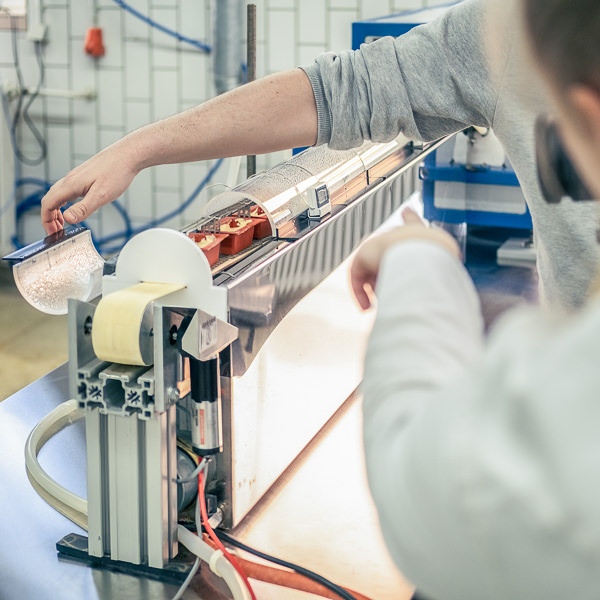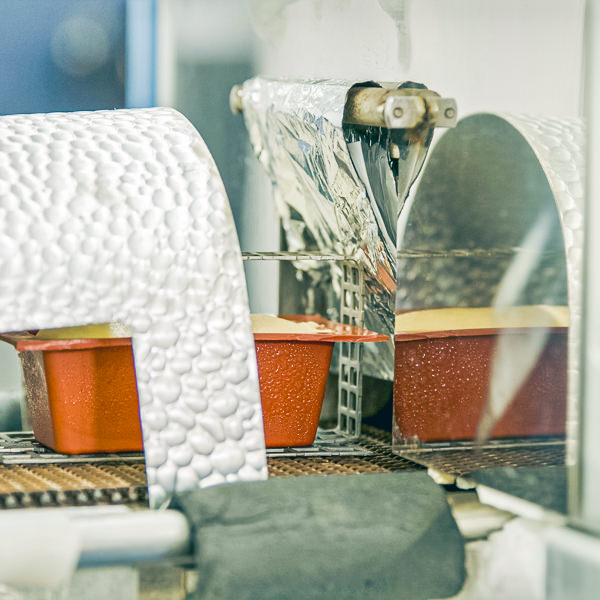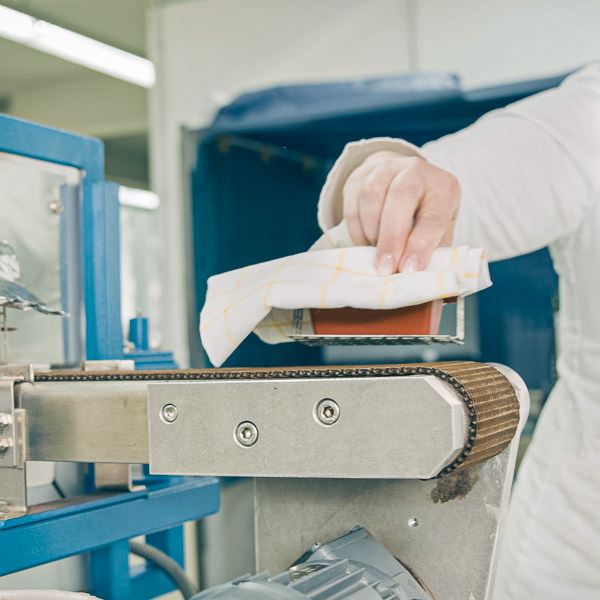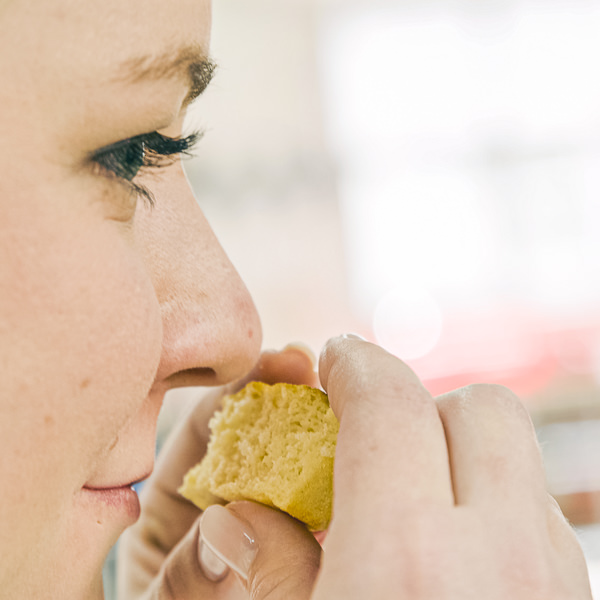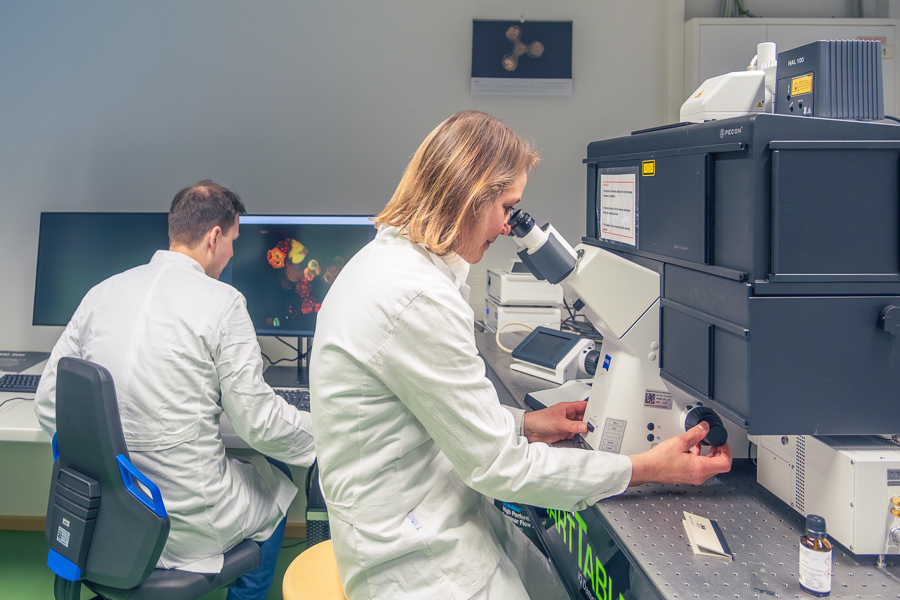
Researching the future: The Protein Puzzle
Proteins are great for people but not always so great for the planet. At the University of Hohenheim, our scientists have joined researchers worldwide to explore ways to solve this problem – to feed humanity without destroying our home.
Today’s research, tomorrow’s food: Exploring the building blocks of life
Proteins are the superheroes of the biological world. They are the building blocks of life, playing a crucial role in the human body for everything from digestion to immune defense. Their complex functions make them fascinating subjects for research.
If you’re wondering what exactly proteins do in our bodies, the real question is: What don’t they do? They are vital for so many processes. Here are just a few highlights:
- Immune function (antibodies)
- Muscle contraction and movement (contractile proteins)
- Metabolic reactions (enzymes)
- Growth (hormones)
- Bones, cells, and skin (structural proteins)
- Storing and carrying vital elements (storage proteins and transport proteins)
The plate vs. the planet: Balancing human and planetary health
Animal-based foods like meat, poultry, fish, eggs and dairy are excellent protein sources. So, if we need proteins and can get them from animal products, why are we being told to eat less meat, for example? And why are we hearing about alternative protein products like plant-based meat, oat milk, insect burgers, and vegan fish made from algae?
Current protein research focuses on two aspects: human health and planetary health. That’s because animal-based foods may be packed with beneficial proteins, but some carry health risks. Animal farming is also a major contributor of global greenhouse gases, which are driving climate change.

Phosphorus is a finite resource. Our research aims to help animals process the phosphorus in plant feed as efficiently as possible, reducing the need for phosphorus from mineral sources.
When we eat meat, we also consume substances that aren’t too good for us. One example is saturated fat, which can cause high cholesterol and lead to coronary heart disease. Or let’s take the protein myoglobin, which makes your meat look red (it’s not blood that does it!). Humans expect meat to look that way, but too much myoglobin can cause colon cancer.
Bottom line: Bad to the bone, or finger-licking good?
Ok, so let’s sum this up:
- Proteins are vital to human health. We need to eat them.
- Animal-based food is an easy and excellent source of proteins.
- Animal agriculture, as practiced today, is bad for the climate, the planet, and, ultimately, for us.
So, how can we ensure everyone gets enough protein while maintaining both human and planetary health? In other words: How do we feed the world without destroying the planet?
1, 2, 3 – and then: Piecing together the protein puzzle
It is, indeed, a dilemma. But not an unsolvable one. There are many alternative sources of protein. And researchers worldwide – including our experts here in Hohenheim – are searching for conclusive answers to some of today’s most pressing questions. Here are just a few of the issues we are investigating:
- How delicious and appealing are alternative protein sources compared to the animal-based food we are used to?
- Can we make alternative protein products taste just as good as the animal-based food they’re to replace?
- Can we turn food processing waste into animal feed, other valuable products, or even back into human food?
- Can we influence nutrient turnover in farm animals so that they need less feed, requiring less land to grow it?
- Can we safely utilize more fertilizers to increase crop yields and grow more crops on the same amount of land?
- What would it take to convince people to buy food made from alternative protein sources that are healthy for both people and the planet?
- What would happen to the world economy if we switched to alternative protein products on a global scale and significantly reduced consumption of animal-based food?
Behind the Science
Excellence in research requires access to the latest technology and support for innovation and transfer: Our scientists can draw on a unique combination of state-of-the-art infrastructure, including
Protein-related research areas at the University of Hohenheim
Research with us
The University of Hohenheim is Germany’s leading research facility in agricultural research and food sciences, as well as strong and unparalleled in natural, social, and communication sciences.
- Researchers of Proven Excellence
Our scientists demonstrate exceptional skills, knowledge, and achievements. - Strong Focus on Research
We are very well networked and have a unique research profile. - Scientific Research facilities
The University of Hohenheim accommodates various institutions whose structures enable joint research and teaching activities, thus creating the optimal conditions for conducting outstanding research and then transferring it outside of the university. - Dedicated Portal for Early Career Researchers
We are strongly committed to qualification in the early stages of scientific careers. - Innovation and Transfer
We promote intensive cooperation between scientists, private companies, and other societal actors. - Scientific Integrity at the University of Hohenheim
The University of Hohenheim, as a center for research, teaching, and the promotion of early career researchers, undertakes to create and continuously develop the suitable framework conditions for anchoring the culture of scientific integrity and ethics in daily scientific practice. - Professorial Appointments
Our Professorial Appointment Portal offers help for all parties involved throughout the whole process of professorial appointments. - Cooperations
On all levels, the University of Hohenheim networks with universities and research institutions with outstanding international reputation. - Research Promotion
Professional and practical support and assistance through application processes for third-party funds.
